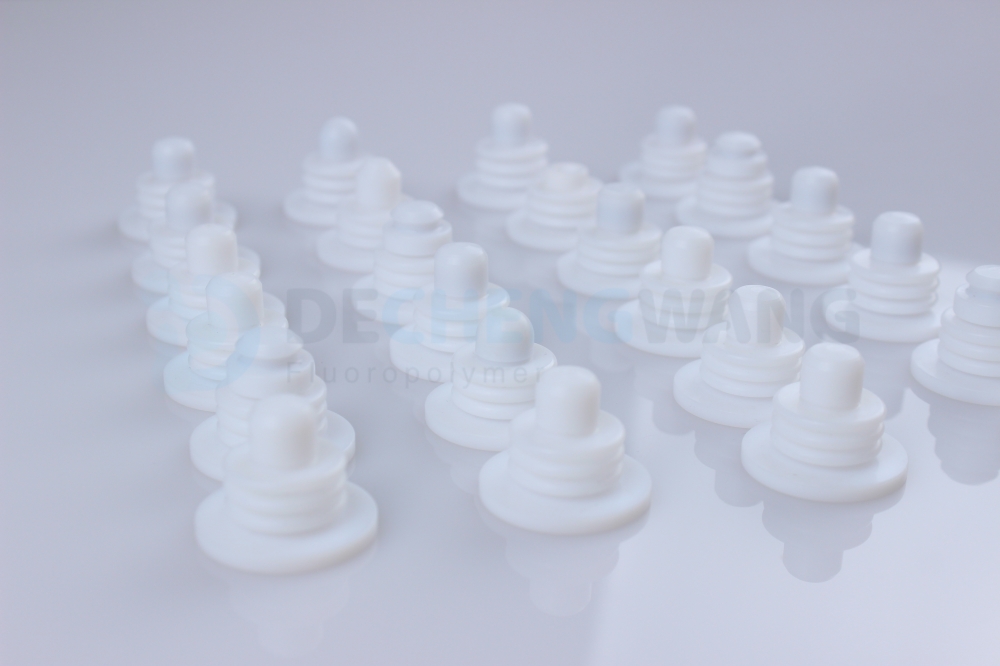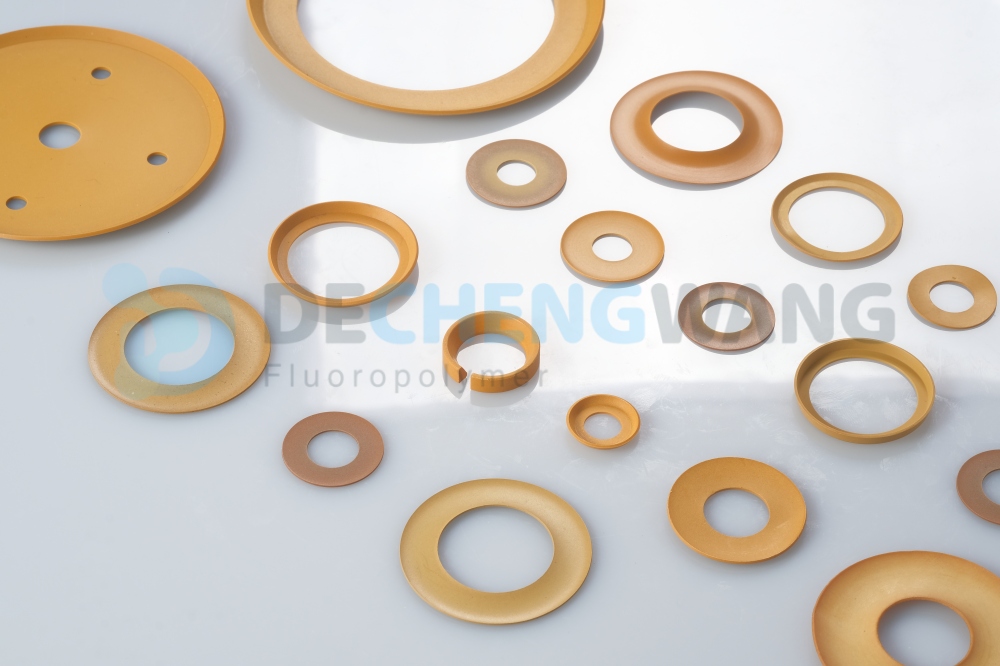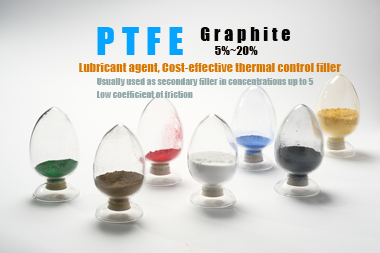When it comes to choosing the right plastic for your business needs, chemical resistance is a crucial factor to consider. Luckily, there are five main types of chemical-resistant plastics to choose from, including PEEK, PTFE, and so on.
By understanding the unique properties of each of these five chemical resistance of polymers, businesses can make an informed decision on which material is best suited for their specific needs.
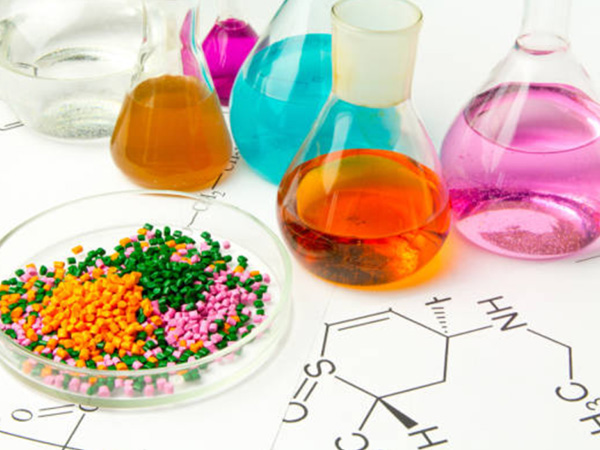
Applications of Chemical Resistant Plastics
Chemical-resistant plastic is a critical component for businesses that deal with hazardous chemicals. Chemical-resistant plastics have a lot of benefits.
Firstly, chemical-resistant plastic provides a safe and secure way to store and transport these chemicals without the risk of leakage or contamination. This is particularly important for industries such as pharmaceuticals, oil and gas, and agriculture.
Secondly, chemical-resistant plastic is durable and long lasting, making it a cost-effective solution for businesses.
In terms of application, these are some common applications of chemical-resistant plastic:
- Pipes and tubes
- Laboratory equipment
- Medical equipment
- Food and beverage storage
- Oil and gas storage
5 Types of Chemically Resistant Plastics
Chemically resistant plastics are materials that can withstand exposure to various chemicals without undergoing any significant damage.
There are 5 main types of chemically resistant plastics available in the market.
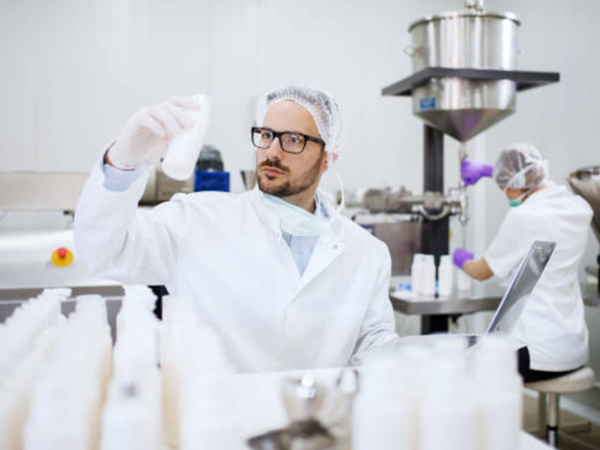
PEEK (polyetheretherketone)
PEEK, a marvel of modern chemistry, boasts an impressive set of properties that make it a top choice for industrial and scientific applications alike. Its unique molecular structure features resilient carbon-carbon and carbon-oxygen bonds, which give it an unparalleled resistance to a wide range of chemicals.
From harsh acids like sulfuric acid and hydrochloric acid to organic solvents such as ketones and esters, Peek can weather them all.
This exceptional chemical resilience has made Peek a favored material for use in everything from chemical processing and laboratory settings to medical devices and even the demanding environments of the automotive and aerospace industries.
PTFE/Teflon (polytetrafluoroethylene)
PTFE, or polytetrafluoroethylene, can also withstand a wide range of chemicals, including strong acids, bases, and organic solvents. This makes it an ideal material for use in chemical processing, oil, and gas production, and other industries where exposure to harsh chemicals is common.
Another noteworthy benefit of PTFE is its ability to resist corrosion. It is also non-reactive, which means, it does not react with other chemicals or materials.
This makes it an excellent choice for use in applications where purity is critical, such as in the production of pharmaceuticals or food processing.
Also Read: >> PTFE VS PEEK
PVDF (polyvinylidene fluoride)
PVDF is a tough and tenacious plastic that is a real champion when it comes to resisting chemicals.
PVDF owes its chemical resistance to its exceptional intermolecular bonding, which gives it the strength and resilience to stand up to harsh chemicals and solvents. This remarkable plastic is impervious to most organic solvents, acids, and alkalis, which makes it the go-to material for environments that are chemically aggressive.
Its resistance to high temperatures and UV radiation further adds to its versatility and makes it a reliable choice for different applications in various industries. From pipes and tanks to valves and more, PVDF is the superhero of plastics, always ready to defend against the forces of chemical corrosion.
PFA (perfluoroalkoxy alkane)
PFA is a versatile plastic known for its resistance to a wide range of chemicals. Its applications in the chemical processing industry include the production of piping, valves, and fittings that can withstand harsh chemical environments.
This material is also used in the semiconductor industry to make wafer carriers and tubing, and in the medical industry to produce catheters, tubing, and other biocompatible devices that require high chemical resistance.
The exceptional chemical resistance and durability of PFA plastic make it an invaluable material for industries that rely on the safe and efficient transport of chemicals and other hazardous substances.
PCTFE (polychlorotrifluoroethylene)
PCTFE is a robust plastic that can withstand various chemicals, including acids, bases, and solvents, making it ideal for use in chemical processing and laboratory applications.
It’s exceptional resistance to radiation and extreme temperatures also makes it popular in the aerospace industry and nuclear power plants.
One of the primary applications of this powerful chemical-resistant material is in the production of seals and gaskets, thanks to its reliable resistance to temperature fluctuations and chemicals.
Elements to Consider When Choosing Chemical-Resistant Plastics
When choosing the chemical resistance of plastic, there are several factors to consider. Those factors will help you know the plastic chemical compatibility that is suitable for the specific requirements of the application while also being sustainable and cost-effective.
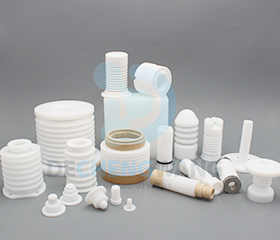
Duration of Chemical Exposure
When choosing chemical resistance of plastics, the duration of chemical exposure is a crucial element to consider.
Chemical compatibility chart plastics have varying levels of resistance to chemicals, and their ability to withstand exposure depends on the type and concentration of the chemical, as well as the length of exposure.
Short-term exposure to chemicals may not have a significant impact on the performance of some plastics. However, prolonged exposure can cause degradation, leading to loss of strength and other physical properties.
Temperature of the Chemical Reaction
It is important to choose a plastic that can withstand the specific temperature range of the chemicals it will be exposed to.
Polytetrafluoroethylene (PTFE) is a popular choice for high-temperature chemical applications. It can withstand temperatures up to 240°C and is highly resistant to chemical corrosion.
It is important to consult with a knowledgeable supplier to determine the best plastic for your specific application. If you are in need of high temperature O-rings, contact DCW to get the products you requires.
Chemical Concentration
In industrial settings, chemicals are often used in higher concentrations than in households, and it’s vital to choose a plastic designed to resist the specific chemical and concentration being used, or else the plastic could quickly degrade and fail.
Therefore, selecting a plastic that is specifically designed to resist the chemical and concentration used will ensure that it performs reliably and lasts longer.
Chemical Contact Area
When selecting plastic chemical resistance, it is essential to consider the chemical contact area. This area is where the plastic will come into contact with the chemical, and it is crucial to ensure that the plastic is resistant to the specific chemical.
The chemical contact area is affected by factors such as temperature, pressure, and chemical concentration. It is essential to consider these factors when selecting chemical resistant plastics.
Type of Chemical Reagent
When selecting chemically resistant plastic, it is also important to consider the type of chemical reagent that will be in contact with the material.
Chemical reagents can vary in their composition and properties, and certain plastics may be more resistant to specific types of chemicals than others. One important factor to consider is the pH level of the chemical reagent.
For instance, fluoropolymers like PTFE are more resistant to alkaline solutions. It is important to choose a plastic that can withstand the pH level of the chemical reagent it will be exposed.
Choose the Ideal Plastic with Dechengwang
Dechengwang offers a wide range of chemical-resistant plastics that are ideal for various industrial applications.
This reliable manufacturer of fluorinated plastic products produces parts made of high quality PTFE and PEEK materials, which can be either supplied directly to the customer or customized according to the actual needs of the customer.
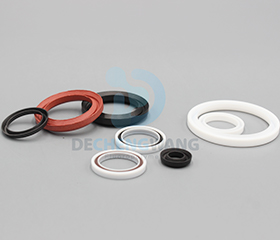
Conclusion
After a thorough explanation of choosing a chemical resistance plastic for your business, it is clear that choosing the right chemical resistance plastic is crucial for any project.
Out of the 5 plastics mentioned, you could see that each has its unique properties and benefits. With Dechengwang, you can be sure to get the perfect solution for your needs.

